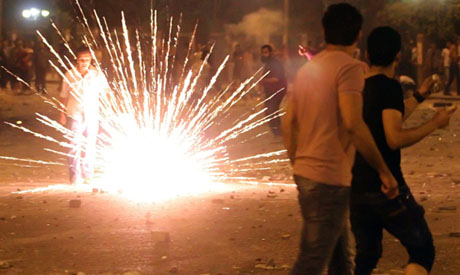Israel is willing to carry out a prisoner exchange with Egypt, in which 63 Egyptians would be swapped for one Israeli prisoner convicted of spying for Israel, Egypt Independent reported on Sunday.
The deal had previously been delayed due to Egypt’s decision to terminate a long-term gas supply to Israel last week.
Although Egyptian authorities have not yet made a decision on the proposed deal, Israeli political sources in Tel Aviv were quoted by Israel’s state Arabic-language radio station as saying they would go ahead with the deal.
The deal had previously been delayed due to Egypt’s decision to terminate a long-term gas supply to Israel last week.
Although Egyptian authorities have not yet made a decision on the proposed deal, Israeli political sources in Tel Aviv were quoted by Israel’s state Arabic-language radio station as saying they would go ahead with the deal.
Hunger strike confusion
Earlier this week, some 40 Egyptian inmates in Israeli prisons went on strike after Tel Aviv and Cairo had failed to agree on a prisoner swap, the Palestinian Ma’an news agency reported.
The swap was expected to take place last Wednesday but did not go ahead. Egyptian officials told Ma’an that they were willing to go through with the prisoner exchange and that the termination of a long-term gas supply to Israel had delayed, but not canceled, the deal.
But the Israeli radio station on Sunday reported that only three Egyptian prisoners have gone on hunger strike to demand their release, adding that they are receiving medical treatment in a prison facility in Ramla.
The station added that the Egyptian consul, Sameh Nabil, has requested permission to visit the prisoners.
An Egyptian official had told Ma’an last week that if the swap goes ahead, the prisoners would be released via the Taba crossing under the supervision of the International Committee of the Red Cross.
Egypt, the Arab world’s most populous nation, was the first to sign a peace treaty with Israel in 1979, a move that prompted the assassination of Egyptian former president Anwar Sadat in 1981.
The swap was expected to take place last Wednesday but did not go ahead. Egyptian officials told Ma’an that they were willing to go through with the prisoner exchange and that the termination of a long-term gas supply to Israel had delayed, but not canceled, the deal.
But the Israeli radio station on Sunday reported that only three Egyptian prisoners have gone on hunger strike to demand their release, adding that they are receiving medical treatment in a prison facility in Ramla.
The station added that the Egyptian consul, Sameh Nabil, has requested permission to visit the prisoners.
An Egyptian official had told Ma’an last week that if the swap goes ahead, the prisoners would be released via the Taba crossing under the supervision of the International Committee of the Red Cross.
Egypt, the Arab world’s most populous nation, was the first to sign a peace treaty with Israel in 1979, a move that prompted the assassination of Egyptian former president Anwar Sadat in 1981.



